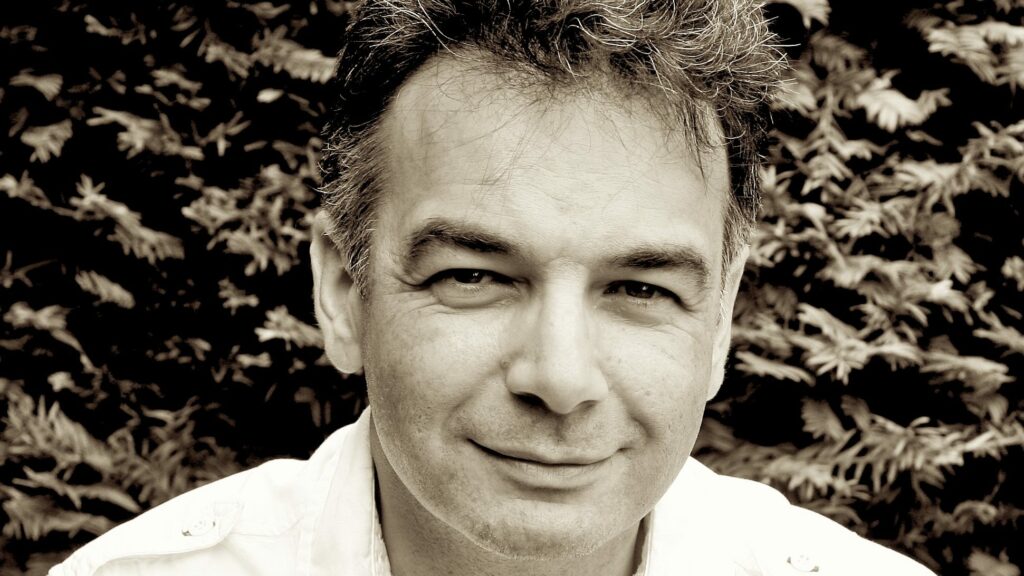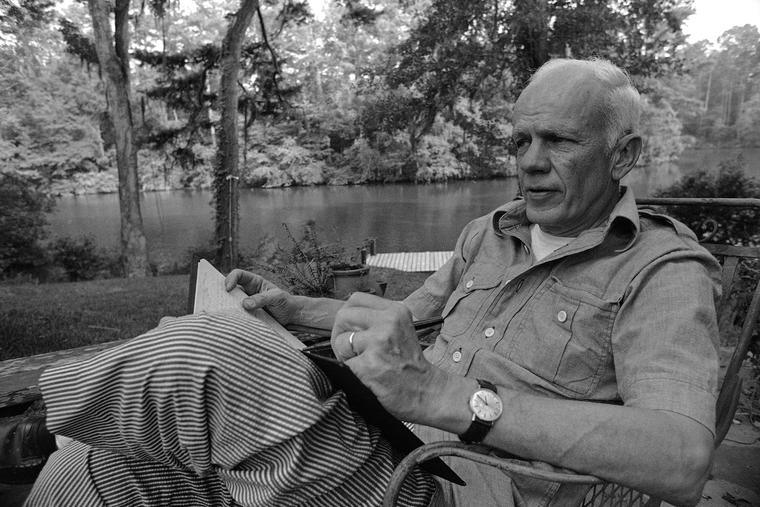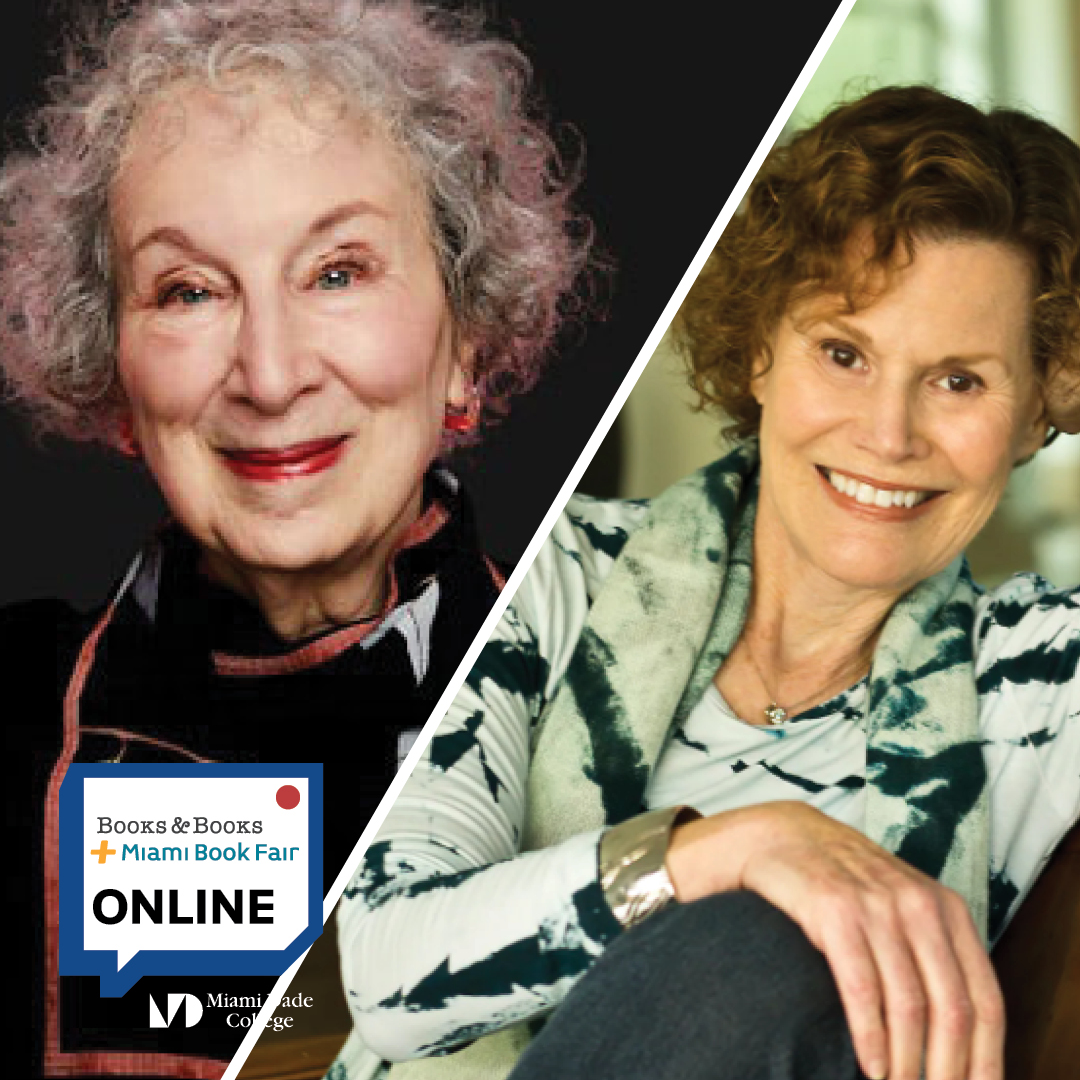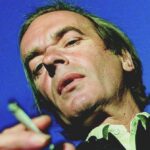Blog Post
Men of Flesh, Blood, and Bone: An Interview with Edoardo Albert
By Jonathon Van Maren
It is rare to discover a novelist of historical fiction who is both relatively unknown and a master of the craft. Edoardo Albert is one such writer. In his Northumbrian Thrones trilogy, the Catholic author tackles a historical period in British history that has largely vanished from the English imagination, but richly deserves the treatment Albert gives it. His books about the Northumbrian kings are not only packed with vivid historical detail; his descriptions of battles and bards and cavernous halls and great warriors can at times be accurately described as Tolkienesque.
We know little of the Northumbrian kings. What we do know comes mostly from archaeological research and Bede’s Ecclesiastical History of the English People, written about 731. The Anglo-Saxon King Edwin was the first Christian ruler of Northumbria, ruling from 616 to 633. Originally a pagan, Edwin converted after his marriage to the Christian princess Aethelburh of Kent, who took the Roman missionary Paulinus with her to Northumbria to establish a church. Many of Edwin’s subjects converted to Christianity in 627, although there were reversions after Edwin was killed by King Cadwallon of Gwynedd and King Penda of Mercia. To the transactional Anglo-Saxons, Edwin’s new God had not done him much good in battle.
In the ensuing power struggle, Edwin’s nephew Oswald returned from exile in Iona to claim the throne. Oswald’s father Aethelfrith, ruler of Bernicia and Deira, had been killed in battle around 616. Oswald and his brother Oswiu fled to the Hebrides, where they became Christians. Upon his return, Oswald defeated and killed Cadwallon in Northumberland, took the throne, and called for a bishop. St. Aidan and a band of Irish monks arrived from Iona, founded the monastery at Lindisfarne, and began a new work of evangelization, since Paulinus had fled with the queen after Edwin’s death and for some years the church was suppressed. When he died in battle against the pagan King Penda in 642, Oswald was canonized a Christian martyr.
Oswald’s brother Oswiu took control of Bernicia after his brother’s death but was subject to Penda for 13 years. At last, Oswiu’s forces killed the Mercian king in the Battle of Winwaed (in what is now West Yorkshire) and Oswiu reunited Northumbria once again under Christian rule.
Oswiu’s Christianity was of the Celtic tradition, and in 663 and 664 the king hosted a meeting known as the Synod of Whitby, where he helped blend the methods of worship of the Roman Catholic Church (in which his wife Eanfled had been raised) and the Celtic churches. Among the decisions made at the Synod (with Oswiu’s direct involvement) was to begin calculating Easter according to the Roman tradition rather than the Ionan calculation. Oswiu died on February 15, 670—of illness, not by the sword.

From these skeletal biographies Edoardo Albert has done a magnificent job of giving us men of flesh, blood, and bone. The Northumbrian Thrones trilogy—Edwin: High King of Britain; Oswald: The Return of the King; and Oswiu: King of Kings—is a historical and literary achievement. Conn Iggulden, himself a reigning king of historical fiction, called the trilogy “brilliant.” While Iggulden’s novels on the Wars of Roses and others stand out in the genre, his book on St. Dunstan (909-988) falls into the postmodern trap of portraying the devout Archbishop of Canterbury as a cynic, ecclesiastical huckster, and schemer. As we move further into the post-Christian age, it has become increasingly difficult for writers to truly immerse themselves in past worlds, where men and women lived lives in which the metaphysical was as real to them as the physical. (Hilary Mantel’s award-winning Wolf Hall does the same damage to the character of Thomas Cromwell, casting him as an ambivalent pragmatist rather than a man of devout convictions.)
Albert does not make that mistake. His portrayal of the Christianity of the period is convincing and clearly written by someone who understands it. Even the brigands and the butchers believed in God or the pagan gods in those days; to believe in nothing, as so many writers do today, was simply unfathomable.
Q. How did you choose this era? It is such a neglected period, making your books a particularly valuable contribution.
There’s a little bit of a clue in my name that I’m not the most obvious person to be writing about 7th century Britain but it’s even more unlikely than it looks. My mother is Italian—hence Edoardo—but my father is actually Sri Lankan, and unusually half Sinhala and half Tamil. The very English surname is a relic of British colonial rule: at some point somebody on my grandfather’s line took an English name. Unfortunately, we know very little about our family history in Sri Lanka as my grandparents were disowned by their own parents—as much because of caste differences as religious ones, my Sinhalese grandmother being high caste—and my father had almost no contact with his own grandparents. My father and mother both arrived in London in the early 1960s, met, and married, meaning that my mother, who came to England to learn English, stayed rather longer than she had intended.
I grew up the son of immigrants, both Catholic, in London and went to Catholic schools, which meant that all my school friends were themselves the sons of immigrants, mainly Irish and Italian with a smattering of Poles, the children of Poles exiled after the end of World War II. The outcome was that it was only when I went to university in my early 20s that I actually met, and became friends with, any actual English people.
The United Kingdom is a union of four different countries—England, Scotland, Wales and Northern Ireland—and that gives the children of immigrants have a potential identity. I could not think myself English, as to be truly English I would have to have deep family roots. But I could, I realised, consider myself British, for that identity basically includes all people of good will who live here as well as being a holdover from the days of the Empire into which my father was born (Ceylon, as it was, only became independent in 1948). Then, when I married a wonderful woman who is thoroughly English, I found myself welcomed even more into the heart of this country. But what was this country and how did I fit into it?
Now, as a Londoner, I had, with all the cosmopolitan blindness that comes from living one’s life in a global city, never given thought much to the north, dismissing it with all the blithe insouciance of the capital. However, my wife’s sister was an archaeologist, married to another archaeologist, and they had established a long-running dig way up in the north of England in some place called Bamburgh. I had never heard of it. But Paul and Rosie kept on inviting us to go up and visit and, in the end, I ran out of excuses and in 2002 we drove up from London for a week’s holiday.
I still remember the quite literally jaw-dropping impact of turning up the coast road from Seahouses and seeing Bamburgh Castle ahead of us, squatting atop its outcrop of the Great Whin Sill, commanding land and sea and sky. It’s an extraordinary castle in an extraordinary location and, arriving there, climbing up to the castle to meet Paul and Rosie and the team from the Bamburgh Research Project, I wanted to know everything about the place and the work they were doing. So began a week of discovery—the first of many. Standing on the ramparts of Bamburgh Castle, I could see, a few miles to the north, Lindisfarne, the Holy Island that breathes connection and separation from the land twice daily as the tides sweep in and out. Two miles out to sea were the Farne Islands, where St Cuthbert had made his hermitage. And in the stronghold of Bamburgh itself, the archaeologists were making some extraordinary discoveries: people had been here for millennia, using the natural outpost of the rock as a citadel and a watchtower before it became the capital of a kingdom.
Paul began telling me something of the history of Northumbria, the early medieval kingdom when this part of the country became a hub of political power and scholarship. He told me tales of kings and saints and warriors, stories of triumph and disaster—and I knew nothing of these matters. I was standing on the spiritual foundations of England, in the remains of a kingdom that had been instrumental in making the pagan Anglo-Saxons Christian and in dividing a single island, Britain, into constituent countries, England, Scotland and Wales, and I knew none of this history. There is a tendency in history lessons in Britain to do the Romans, and then skip almost everything until the Normans arrived in 1066. There is a lot of history to cover in a country as old as Britain, but what we were missing here were the foundations!
In passing, Paul mentioned that a publisher, the History Press, had asked him to write about the findings of their excavations but he had not had time to do so. In such chance remarks are lives remade. What if I wrote it, I asked Paul? He had the knowledge, I had the writing skills: I could mine him for the information and write up the story, pass it to him for checking, and then publish the result. So that is what we did. Over many long phone conversations, we talked the history and archaeology of Northumbria and the result was Northumbria: The Lost Kingdom, published by the History Press. But in the research and writing of this book, I learned about three kings of Northumbria, Edwin, Oswald and Oswiu, successors to each other, whose reigns had such an extraordinary dramatic arc that I felt sure someone must have written about them. But on investigating, it seemed that nobody had. So I decided to do it. I found a publisher, Lion Hudson, willing to commission me, and so I set about writing a trilogy of historical fiction novels.
READ THE REST OF THIS INTERVIEW AT THE EUROPEAN CONSERVATIVE








